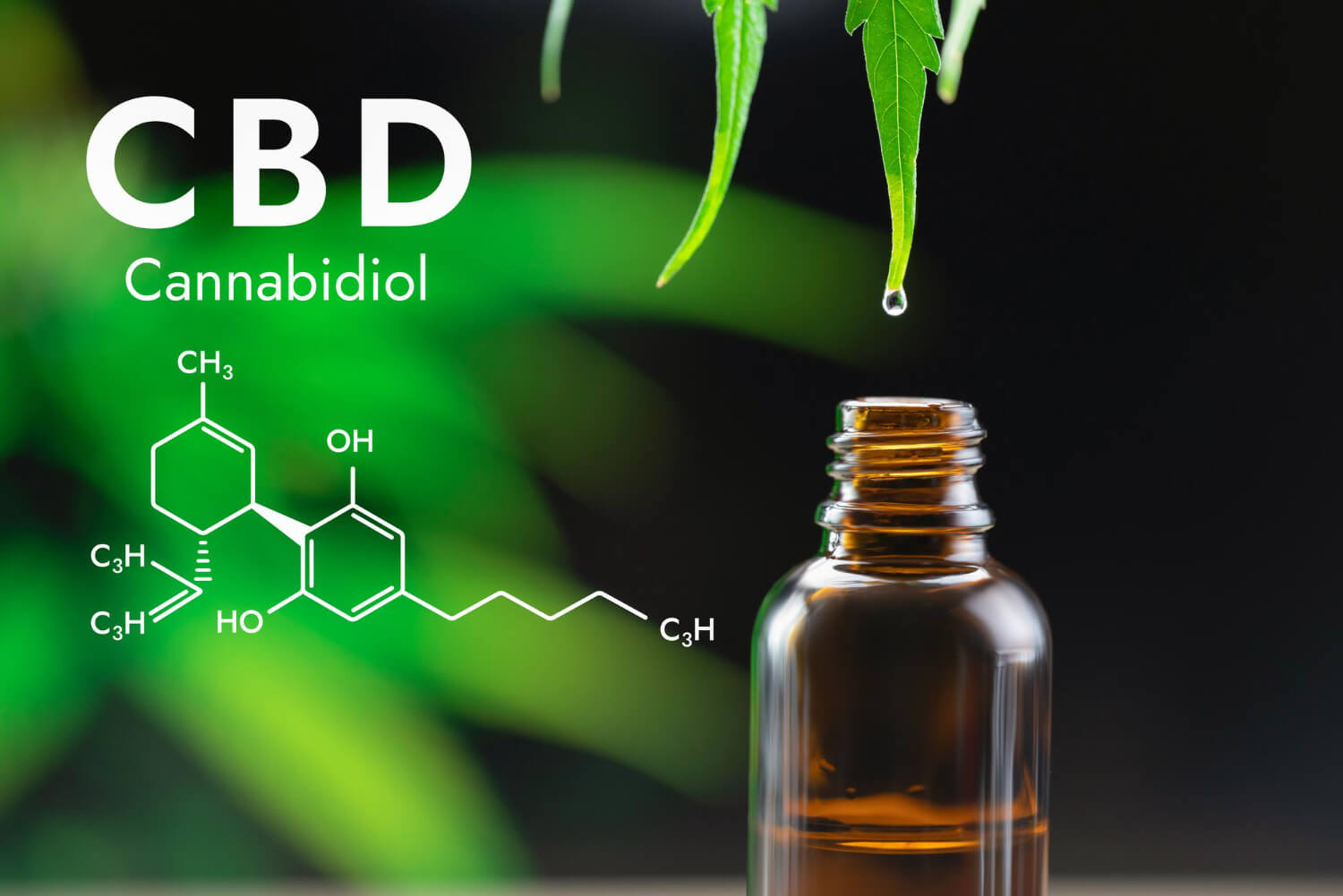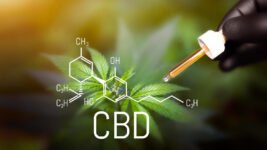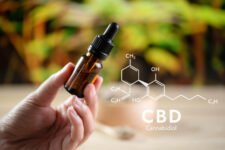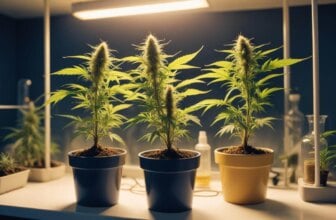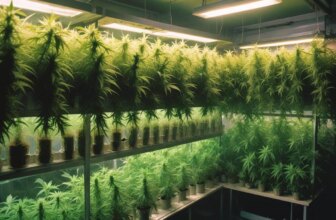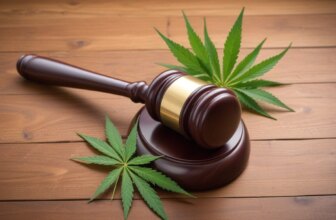With the increasing popularity and widespread use of CBD (cannabidiol) products for various wellness purposes, a central question arises: is CBD a drug? This query delves into the complex realm of CBD’s classification, legality, and its potential medicinal applications.
CBD in the Medical World
Cannabidiol (CBD), a natural substance found in the cannabis plant, has become quite popular lately for its possible healing benefits. Unlike THC, CBD doesn’t make you feel “high”like marijuana does.
In the medical world, opinions on CBD are mixed. Some healthcare experts are uncertain about it, while others are hopeful. This difference in thinking comes from the fact that we’re still learning a lot about CBD.
But here’s the interesting part: more and more evidence is suggesting that CBD could be useful for various health issues. CBD seems to talk to something called the endocannabinoid system (ECS), a network of receptors that affect important stuff like pain, mood, sleep, and appetite.
CBD might help with anxiety, maybe by chatting with the serotonin system. It might also have some anti-inflammatory and brain-protecting powers, which could be helpful for certain conditions.
But here’s the catch: we need more research to be sure if CBD is the real deal for these conditions. So, before you dive into CBD, it’s smart to have a chat with a healthcare pro. They can help figure out if it’s safe and right for you, especially if you’re taking other medications. Safety first, always!
Legal Perspectives on CBD
The legality of CBD differs widely depending on where you are. Several factors come into play when determining whether CBD is legal or not.
THC Content
THC is the part of cannabis that gets you high. CBD products with lots of THC are often illegal, while those with low THC levels are more likely to be considered legal. Usually, products must contain 0,3% of THC or lower to be legal.
Source
CBD can come from two types of cannabis plants. Hemp has low THC, while marijuana has a lot. CBD from hemp is usually legal, while CBD from marijuana might not be.
Local Laws
Local rules and regulations can also affect whether CBD is legal. It’s like a patchwork quilt – legal in one state, illegal in another.
How CBD’s legality shakes out in different places
- United States:CBD is legal under federal law, but some states have their own rules.
- Canada:CBD is legal across the country.
- United Kingdom:It’s legal for medical use.
- Germany:Also legal for medical use.
- Australia: Yup,legal for medical use.
Remember, the legality of CBD can change. It’s like a moving target. Always check with your local authorities to be sure.
The World Health Organization’s Stance
The World Health Organization (WHO) actually gives CBD a thumbs-up. In 2017, the WHO Expert Committee on Drug Dependence (ECDD) dug into CBD and found it doesn’t look like it can be misused or cause harm when it’s in its pure form. Plus, they saw potential in it for treating things like epilepsy, anxiety, and chronic pain.
In their 2018 report, the WHO went ahead and said, “CBD is generally well-tolerated and safe.”They made it clear that there’s zero evidence linking pure CBD to any public health problems.
Now, the WHO’s take on CBD’s abuse potential is crystal clear. They say it’s unlikely because CBD doesn’t give you that trippy experience you’d get from THC, the mind-bending part of cannabis. And they’ve got no red flags about public health issues tied to pure CBD either. This suggests that CBD isn’t likely to be misused or lead to dependence.
In summary, the WHO has a positive perspective on CBD. They see CBD as generally safe, well-tolerated, and having a low risk of misuse or dependence. Plus, they recognize its potential for various therapeutic benefits.
It’s essential to keep in mind, though, that the WHO doesn’t oversee the sale or production of CBD products. That’s the job of individual countries and states.
Public Perception and Misconceptions
Here are some common Myths About CBD.
CBD Isn’t a Drug
CBD isn’t your typical drug. Drugs usually mess with your mind or body chemistry. But CBD doesn’t do that; it doesn’t get you high or mess with your body like drugs do.
CBD Isn’t Addictive
You won’t find people craving CBD like they do with addictive stuff. Addiction means you can’t stop even if it’s hurting you. CBD doesn’t make you addicted; there’s no proof of that.
CBD Is Mostly Legal
In many countries, like the United States, Canada, and the United Kingdom, CBD is cool with the law. But, you know how rules are, there are a few places where it’s not allowed, like some states in the U.S.
Distinguishing Medicinal Drugs from Potential Trouble
Medicinal drugs are the ones doctors give you for treating or preventing illnesses. The government keeps an eye on them, and you usually need a doctor’s note to get them.
Then there are substances that people can misuse or get hooked on. These often have rules around them, and you might get in trouble if you have them without a doctor’s say-so.
CBD falls into the medicinal drug category. It’s regulated by the government in some places and might need a doctor’s thumbs-up. But here’s the twist: CBD isn’t something you’re going to misuse or get addicted to.
What People Think About CBD
CBD looks promising, with potential health perks. But, there’s that “more research needed” sign flashing which is the sentiment of many people. So, before you jump on the CBD train, chat with your doc, especially if you’re on other meds.
Conclusion
The popularity of CBD for wellness raises a crucial question: Is CBD a drug? This complexity lies in its classification, legal status, and medicinal potential.
CBD in Medicine
CBD, derived from cannabis, lacks psychoactive effects. Medical opinions vary, but emerging research suggests its therapeutic potential, notably its interaction with the endocannabinoid system. This potential includes anxiety relief and anti-inflammatory properties. However, robust research is vital. Consult healthcare professionals, especially when using other medications.
CBD’s Legal Status
CBD’s legality hinges on THC content, source (hemp or marijuana), and local regulations. While some nations embrace it, varying state laws in the United States can lead to confusion. Staying informed through local authorities is crucial.
World Health Organization’s View
The WHO recognizes CBD’s safety and low abuse potential. Reports highlight its promise in epilepsy, anxiety, and pain management. Unlike THC, CBD doesn’t induce mind-altering effects, reducing misuse concerns. Product regulation remains under individual countries.
Public Perception and Misconceptions
Myths about CBD, like addiction or universal illegality, persist. CBD falls under medicinal drugs, distinct from potential abuse substances. While promising, prudence dictates awaiting further research and consulting healthcare professionals, especially when using other medications.
In this evolving CBD landscape, staying informed and adhering to local regulations is paramount.

